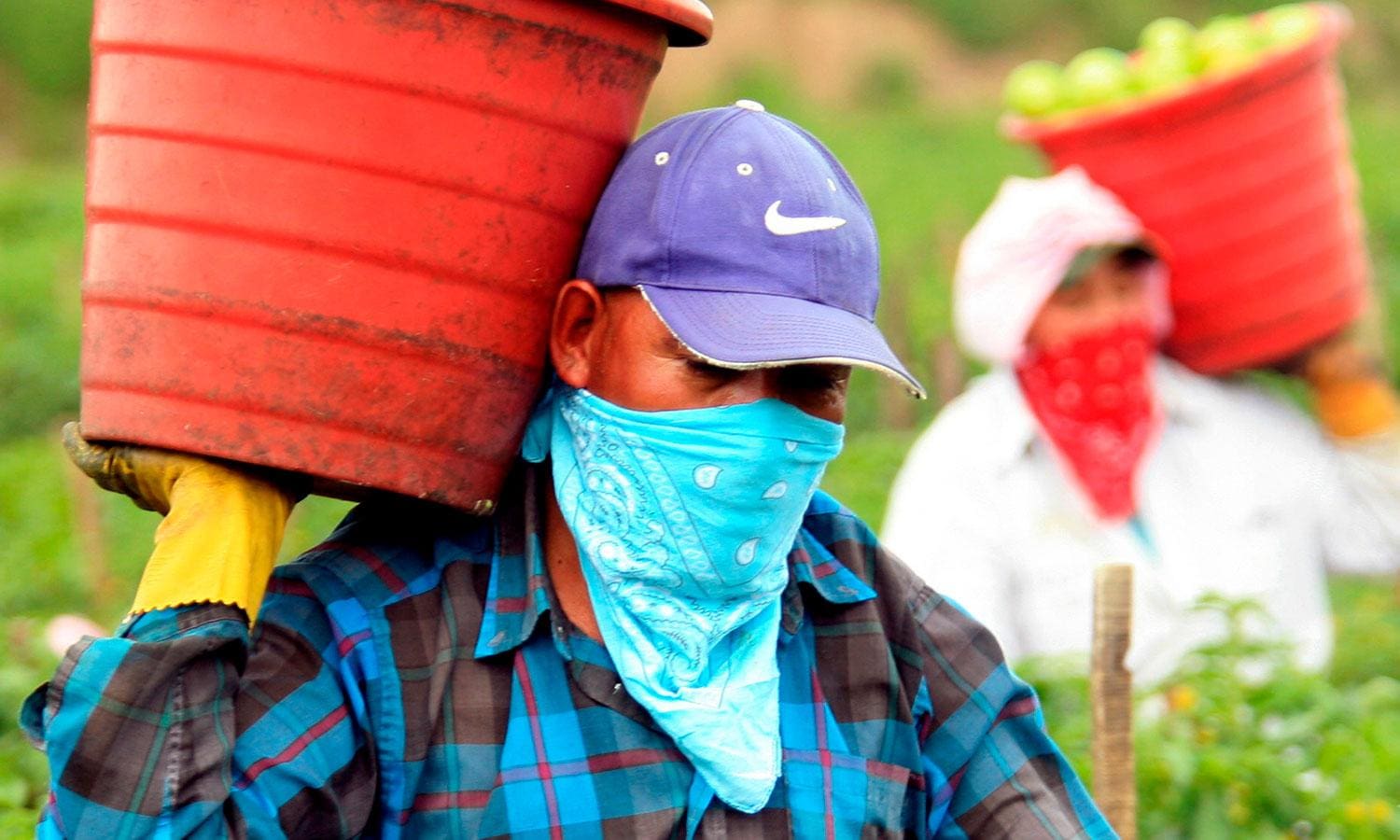Factory farming has become a prominent method of food production in many countries around the world. With its emphasis on efficiency and cost-effectiveness, this industry has been able to meet the growing demand for meat, dairy, and eggs. However, behind the scenes of this highly profitable industry lies a harsh reality for the workers on these factory farms. The psychological toll on factory farm workers is often overlooked and rarely discussed. These individuals are exposed to intense and often traumatic working conditions, which can have a significant impact on their mental health. In this article, we will delve into the various factors that contribute to the psychological toll on factory farm workers. From the physical demands of the job to the emotional distress caused by their daily tasks, we will explore the unique challenges that these individuals face and how it affects their well-being. By understanding the psychological toll on factory farm workers, we can shed light on this often forgotten aspect of the industry and advocate for better working conditions for these individuals.
High demands and low pay: The harsh reality for factory farm workers.

Factory farm workers face incredibly demanding conditions and are often subjected to long hours of physically demanding labor. They work tirelessly, day in and day out, to meet the demands of a rapidly growing industry. Unfortunately, these workers are often paid minimal wages, far below what would be considered fair compensation for the arduous work they perform. This combination of high demands and low pay creates a harsh reality for factory farm workers, leaving them in a constant struggle to meet their basic needs and provide for their families. The financial strain and lack of job security take a toll on their overall well-being, contributing to increased stress and anxiety. It is crucial to recognize and address the disparity between the demands placed on factory farm workers and the compensation they receive, as it not only affects their economic stability but also has a significant psychological impact on their overall health and happiness. Understanding and addressing the challenges faced by these workers is essential for creating a more equitable and sustainable industry.
Physical and mental strain: The toll of repetitive and strenuous tasks.

The physical toll of repetitive and strenuous tasks on factory farm workers cannot be overlooked. These workers are often required to perform the same movements and tasks repeatedly throughout their shifts, leading to a high risk of developing musculoskeletal disorders. The strain on their bodies from lifting heavy loads, bending, twisting, and standing for long periods can result in chronic pain, injuries, and physical exhaustion. Additionally, the mental strain of performing monotonous and physically demanding work can lead to fatigue, decreased concentration, and increased levels of stress and frustration. The combination of physical and mental strain not only affects the workers’ ability to perform their jobs effectively but also impacts their overall quality of life. It is imperative to address these issues and provide support and resources to alleviate the physical and mental burden placed on factory farm workers.
Isolation and confinement: The psychological impact of working in confined spaces.
Working in confined spaces can have a profound psychological impact on factory farm workers. The isolation and confinement experienced in these environments can lead to feelings of loneliness, anxiety, and depression. The lack of social interaction and limited exposure to natural light and fresh air can contribute to a sense of being trapped and disconnected from the outside world. This prolonged exposure to the same environment day in and day out can also lead to a sense of monotony and boredom, further exacerbating feelings of isolation. The psychological toll of working in confined spaces should not be underestimated, and it is crucial to provide strategies and support systems to help workers cope with these challenges and maintain their mental well-being.
Witnessing animal suffering: The emotional burden of factory farming.

Witnessing the suffering of animals within the context of factory farming can impose a significant emotional burden on individuals involved in this industry. The harsh realities of witnessing animals endure cramped living conditions, physical abuse, and neglect can elicit feelings of sadness, helplessness, and moral distress. The graphic nature of the work, coupled with the knowledge that these animals are subjected to immense pain and suffering, can lead to a range of emotional responses such as guilt, anger, and compassion fatigue. This emotional burden can have long-lasting effects on the mental well-being of factory farm workers, highlighting the importance of providing support mechanisms and resources to help them navigate the ethical and emotional complexities associated with their roles. Understanding the psychological impact of witnessing animal suffering is crucial in creating a more compassionate and sustainable agricultural industry.
Health hazards and safety risks: The dangers faced by farm workers.

Farm workers face a multitude of health hazards and safety risks in their daily work. Exposure to harmful chemicals, pesticides, and fertilizers puts them at risk of developing respiratory issues, skin diseases, and even neurological disorders. The physical demands of farm work, such as heavy lifting, repetitive motions, and prolonged standing, contribute to musculoskeletal injuries. Additionally, farm machinery and equipment pose a significant danger, with the potential for accidents leading to amputations, fractures, and even fatalities. The lack of proper safety training, inadequate protective gear, and long working hours further exacerbate the risks faced by farm workers. These health hazards and safety risks underscore the urgent need for comprehensive safety regulations, proper training programs, and improved working conditions to ensure the well-being and livelihoods of those working in the agricultural sector.
Exploitative working conditions: How factory farms often mistreat their employees.
Factory farms, known for their intensive and large-scale production methods, have come under scrutiny for the exploitative working conditions often imposed on their employees. These conditions include long working hours, low wages, and limited access to basic labor rights. Workers are frequently subjected to physically demanding tasks without adequate breaks or rest periods, leading to exhaustion and increased risk of injuries. The nature of factory farming, with its emphasis on efficiency and high production rates, often prioritizes profit over the well-being and rights of workers. This disregard for employee welfare not only perpetuates a cycle of exploitation but also takes a toll on the psychological health and overall quality of life of those working in these environments. Understanding and addressing these exploitative conditions is crucial to advocating for the rights and dignity of factory farm workers.
Coping mechanisms and support: The need for mental health resources for workers.

Given the challenging and demanding nature of factory farm work, it is essential to recognize the need for coping mechanisms and support in order to address the significant psychological toll on workers. The physically demanding tasks, long hours, and limited access to breaks can contribute to feelings of stress, burnout, and emotional exhaustion. Providing mental health resources and support systems for workers is crucial in promoting their overall well-being and mental resilience. This can include access to counseling services, employee assistance programs, and educational initiatives aimed at promoting mental health awareness and self-care strategies. By acknowledging and addressing the unique challenges faced by factory farm workers, we can create a healthier and more supportive working environment that prioritizes mental well-being alongside physical safety.
Collective action for change: The importance of advocating for better conditions for farm workers.
It is evident that collective action plays a pivotal role in advocating for better conditions for farm workers. By joining forces and working together, individuals, organizations, and communities have the power to bring about meaningful change in the agricultural industry. Through collective action, advocates can raise awareness about the challenges faced by farm workers, amplify their voices, and push for policy reforms that prioritize their rights and well-being. This can include advocating for fair wages, improved working conditions, access to healthcare and social benefits, and the enforcement of labor regulations. By advocating for better conditions, we not only uplift the lives of farm workers but also contribute to building a more equitable and sustainable agricultural system for all.
In conclusion, the psychological toll on factory farm workers is a serious issue that needs to be addressed. It is clear that the work environment in these facilities can have a negative impact on the mental health of employees. As consumers, it is important to consider the well-being of these workers and support companies that prioritize their health and safety. Additionally, industries and governments must take steps to improve working conditions and provide support for workers who may be struggling. Only by acknowledging and addressing the psychological toll on factory farm workers can we create a more ethical and sustainable system for both animals and employees.
FAQ
How does the repetitive and monotonous nature of work in factory farms impact the mental health of workers?
The repetitive and monotonous nature of work in factory farms can have a negative impact on the mental health of workers. The lack of variety and stimulation can lead to boredom and feelings of dissatisfaction, which can contribute to increased stress levels and decreased job satisfaction. Additionally, the physically demanding and often dangerous nature of the work can further exacerbate mental health issues. The isolation and limited social interaction in these environments can also contribute to feelings of loneliness and depression. Overall, the repetitive and monotonous nature of work in factory farms can have a detrimental effect on the mental well-being of workers.
What are the long-term psychological effects of witnessing animal cruelty and suffering on factory farm workers?
Witnessing animal cruelty and suffering on factory farms can have significant long-term psychological effects on workers. Research suggests that exposure to such conditions can lead to the development of compassion fatigue, which is characterized by emotional exhaustion, depersonalization, and reduced empathy towards both animals and humans. Workers may also experience symptoms of post-traumatic stress disorder (PTSD), including intrusive thoughts, nightmares, and heightened anxiety. The moral dilemmas and cognitive dissonance associated with participating in animal cruelty can also lead to feelings of guilt, shame, and moral distress. Overall, witnessing animal cruelty in factory farms can have a profound and lasting impact on the mental well-being of workers.
How does the constant exposure to hazardous working conditions, such as noise, odors, and chemicals, affect the mental well-being of factory farm workers?
The constant exposure to hazardous working conditions in factory farms can have significant negative impacts on the mental well-being of workers. The high levels of noise, unpleasant odors, and exposure to chemicals can lead to increased stress, anxiety, and depression among workers. These conditions can also contribute to sleep disturbances and fatigue, further exacerbating mental health issues. The repetitive and physically demanding nature of the work, coupled with the lack of control over their environment, can also contribute to feelings of powerlessness and decreased job satisfaction. Overall, the constant exposure to hazardous conditions in factory farms can take a toll on the mental well-being of workers.
What are the psychological challenges faced by factory farm workers when it comes to maintaining a work-life balance and dealing with the physical demands of the job?
Factory farm workers face several psychological challenges when it comes to maintaining a work-life balance and dealing with the physical demands of the job. The repetitive and monotonous nature of the work can lead to feelings of boredom and disengagement, impacting their mental well-being. Additionally, the long and irregular working hours can make it difficult to spend quality time with family and friends, leading to social isolation and strained relationships. The physically demanding nature of the job, such as heavy lifting and exposure to noise and odors, can also contribute to physical exhaustion and increased risk of injuries, further impacting their mental and emotional health.
How do the high rates of job insecurity and low wages in the factory farming industry contribute to stress, anxiety, and other mental health issues among workers?
The high rates of job insecurity and low wages in the factory farming industry contribute to stress, anxiety, and other mental health issues among workers by creating an unstable work environment and financial strain. The fear of losing their job at any time and the inability to earn a sufficient income lead to constant worry and anxiety. Additionally, the demanding nature of factory farming work, with long hours and physically demanding tasks, can also contribute to increased stress levels and a higher risk of mental health issues. Overall, the combination of job insecurity and low wages in the industry creates a challenging and mentally taxing work environment for workers.















































